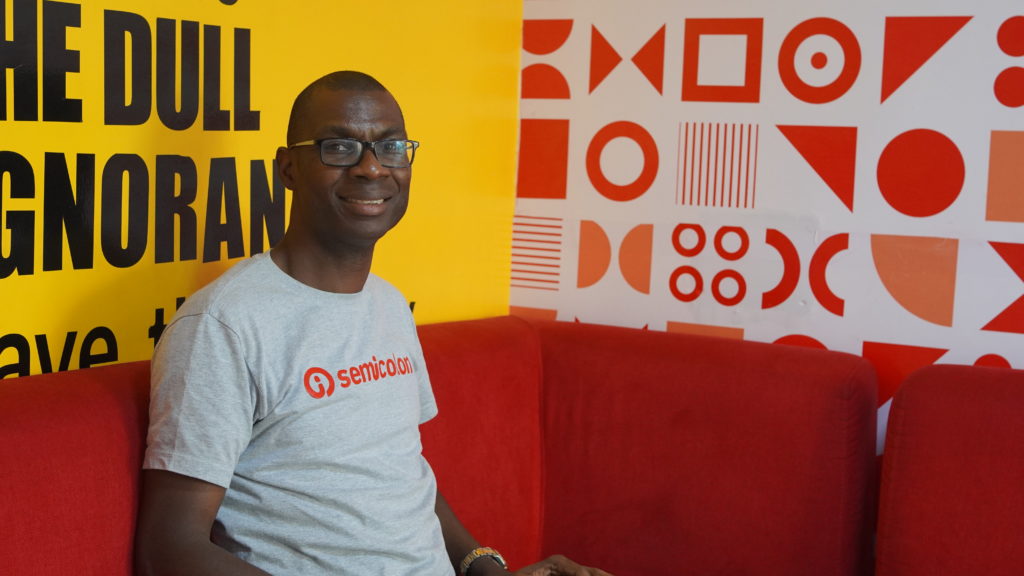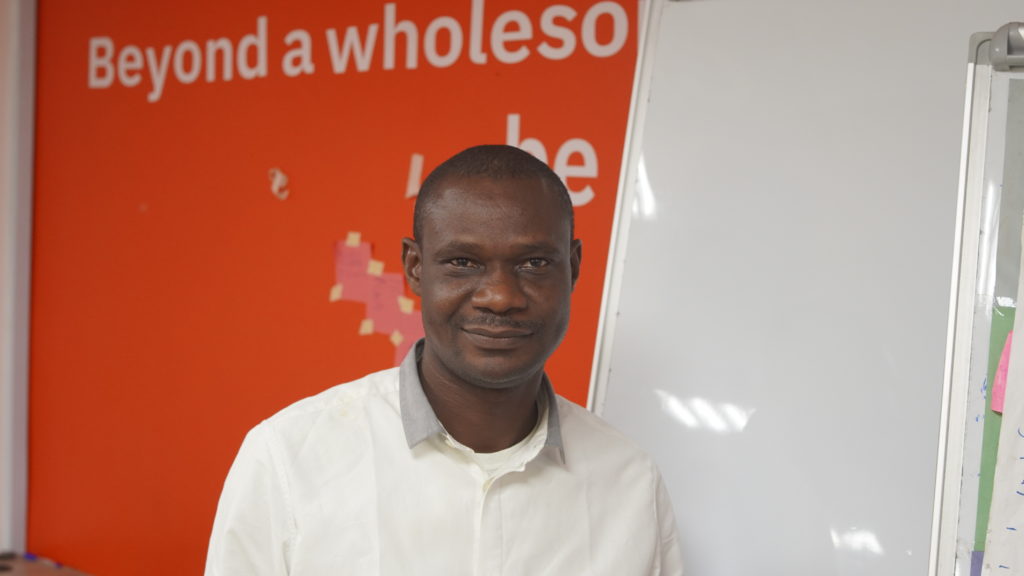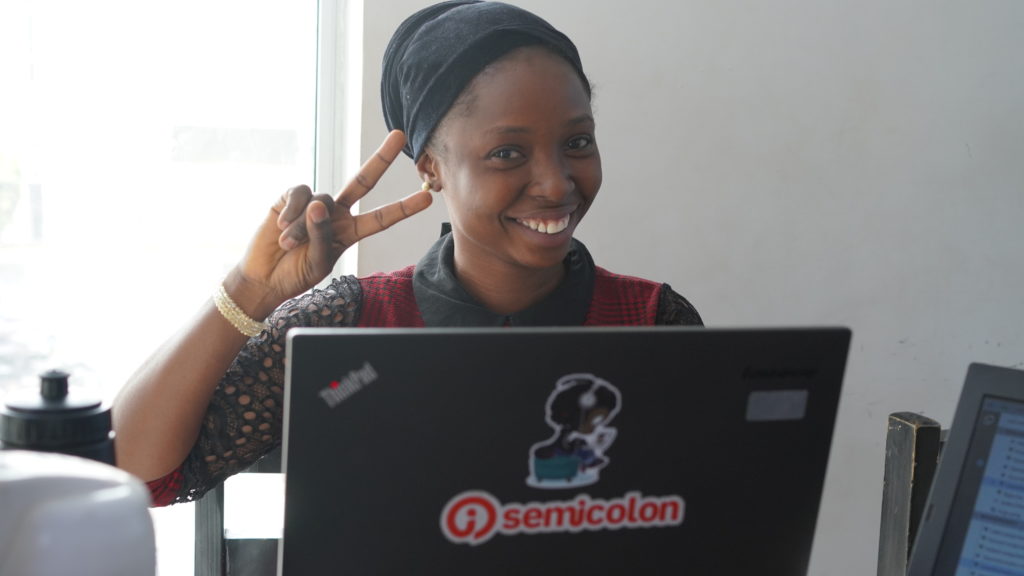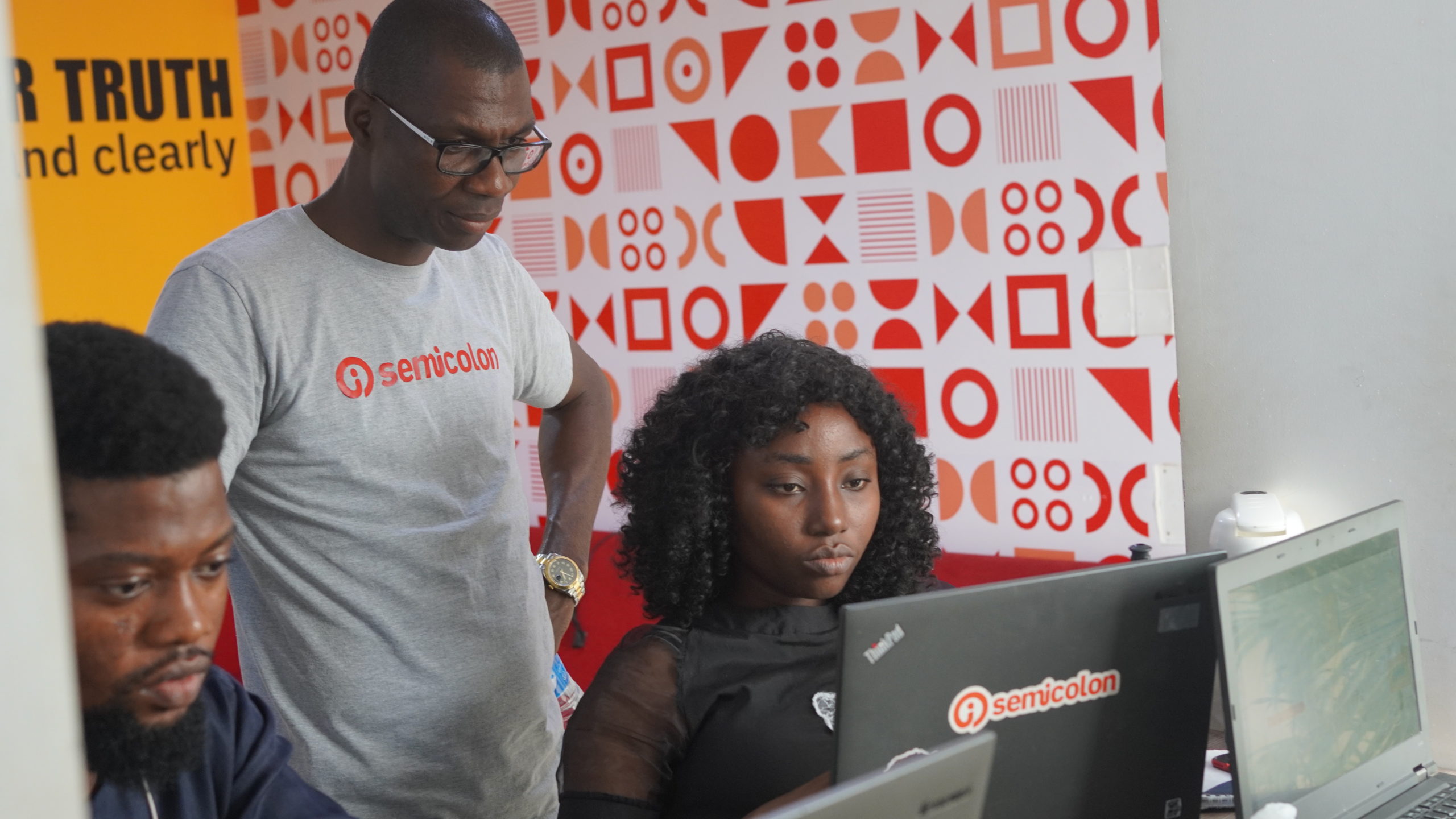Gbemisola Imran is one of only four women in a class of thirty-one at Semicolon. In ten months, she has absorbed modules and done projects on design thinking, software engineering and business management. When her cohort graduates this March, she expects Google to make her an offer.
Semicolon is a technology capacity-development startup. Sam Immanuel tells me he founded the company in January 2019 to build future business leaders that will contribute to a culture of innovation in Nigeria.
“We don’t believe everyone should become a software engineer,” he clarifies. But by recognizing technology as an enabler, anyone can participate in developing solutions to Nigeria’s myriad challenges.
By a modest estimation, Immanuel expects Semicolon will generate $4 billion over five years for the local ecosystem.
That’s an ambitious agenda. Nigeria’s unemployment rate is projected to hit 33% later this year. About 500,000 students graduate from her tertiary institutions every year. Much value stands to be unlocked by a conscious approach to human capital development.
A striking enthusiasm prevails at Semicolon’s campus in the Yaba area of Lagos. I visit on the first day for new arrivals to the 12-month programme. In a group bonding exercise, a task requires natives (as students are called), to identify their business role models.
By January 2021, the idea is to become as close to those models as possible.
It is an exciting pitch, but Semicolon is hardly alone in this business. Companies like Andela, Utiva, Nesa by Makers, and Decagon promise to develop skilled expertise for Africa’s tech industry.
Decagon has a six-month programme, featuring software engineering and machine learning tracks. Those who take-up the complete package – boarding, daily feeding, and a monthly ₦40,000 ($110) stipend – and get a job afterwards are expected to pay back ₦3 million ($8,200) over a maximum period of 3 years.
As Andela shows, the business of training tech talents isn’t straightforward in its unit economics.
Contractions in Andela’s market opportunities affected 420 junior developers last year, but their model continues to depend on engineers fulfilling partner engagements. Andela continues to expand but entrants into the tech training landscape must have realistic expectations for scale.

Immanuel recognizes the challenge. After launching a year ago, he raised a seed round of “a little over $600,000” in equity from family and friends. The company is currently working towards another round to invest in growth.
The path to sustainability, however, requires Semicolon to drive internal revenue.
Each native pays ₦2.3 million ($6,280) to cover the cost of the training (Until the fourth cohort that began this month, tuition fee was ₦1.8 million, about $4,920).
Resources that come with the training include a Lenovo Thinkpad, access to a multi-disciplinary technical faculty, and daily access to the campus’ internet facilities.
The company offers three repayment options: footing the bill at once upfront, paying in installments over 12 months, or paying back when you land a job after the programme.
While not feasible for most, Semicolon will be encouraged by new natives like Sunlola Fakolujo.
An Oracle certified engineer, Fakolujo joins cohort 4 with his wife and three children. He is opting to pay for his children upfront, and for himself and wife through the Creative Industry Financial Initiatives (CIFI) loan, a facility by the Central Bank of Nigeria for the information technology and creative industry.

The strongest signal for Semicolon to show traction, though, is getting the third repayment channel to prosper.
To achieve that, they are banking on successes like Omotolani Ligali, a twenty-five year old Physics graduate from the University of Lagos.
For Ligali, leaving a full-time job to follow her passion for tech at Semicolon seemed an unreasonable gamble at the time.
But three months after enrolling for the first cohort, Ligali landed a graduate trainee role at IHS Towers, a telecoms infrastructure company based in Lagos. She already earns a salary.
Abel Ray, another cohort 1 native, resumes in February as a developer at Wema Bank, a Nigerian financial institution. Of 31 students in that inaugural cohort, 13 have got full-time jobs.
Fulfilling the three-pillar curriculum is, therefore, critical for Semicolon’s business model. An incentive is to engineer a virtuous cycle that attracts the ideal native: a student with the attitude and aptitude for learning. He or she must be willing to put in the hard work required, Immanuel emphasizes.
It is not obvious that Semicolon will fulfill this ambition of placing every native in a job. Again, remember Andela.
However, the conviction for Semicolon is that, unlike Andela, talent is not being outsourced; they are empowered to be independent.

In any case, Immanuel sees a big opportunity amid the uncertainty. As a long-time software engineer with stints at Accenture in the UK, years of financial services and investments experience in the San Francisco Bay area support his sense of the opportunity size.
“If we understand the challenges the country has, the question is not how far we can go,” he says, with a determined look.
Semicolon’s core focus is on having the capacity to plug the skill gaps in agriculture, education, health and other sectors.
The question, as Immanuel sees it, is not on the model’s sustainability. A thriving ecosystem focused on innovation will “continue to require more people and we will continue to find ways to meet up with demand.”
Naheem, who also left a full-time job to enrol at Semicolon, is having lunch as I conclude my visit here. It is rice and stew in a pink pack but he swears it’s worth N1.8 million. In seven months as a Semicolon cohort 2 native, he’s gained software engineering skills that sets him on an independent path.
“I’m not only confident of getting a better job. I’m confident of starting my own business when I want to.”



















